Business
Taxpayers launching court fight against undemocratic capital gains tax hike
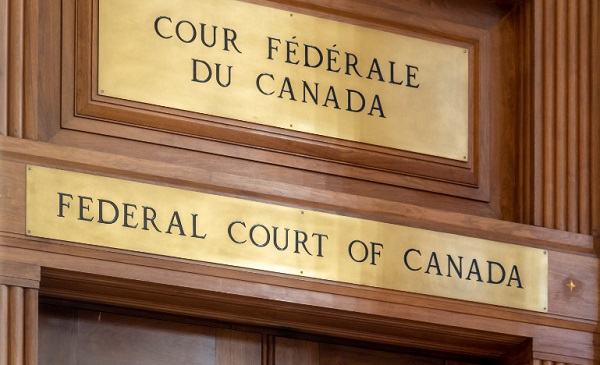
From the Canadian Taxpayers Federation
By Devin Drover
There is no realistic chance the legislation will pass before the next election. Despite this, the CRA is pushing ahead with enforcement of the tax as if it is already law.
The Canadian Taxpayers Federation is filing a legal challenge today to stop the Canada Revenue Agency from enforcing a capital gains tax increase that has not been approved by Parliament.
“The government has no legal right to enforce this tax hike because it has not received legislative approval by Parliament,” said Devin Drover, CTF General Counsel. “This tax grab violates the fundamental principle of no taxation without representation. That’s why we are asking the courts to put an immediate stop to this bureaucratic overreach.”
The CTF is representing Debbie Vorsteveld, a resident of Mapleton, Ontario. Last year, she and her husband, Willem, sold a property that included a secondary home. They had rented the secondary home to their adult children, but had to sell it when their kids were ready to move on. The CRA says the Vorstevelds must pay higher capital gains taxes under the proposed capital gains increase or face financial penalties.
The CTF is seeking urgent relief from the Federal Court to block the CRA’s enforcement of the proposed tax increase. In its application, the CTF argues the tax increase violates the rule of law and is unconstitutional.
The government passed a ways and means motion for the tax increase last year but failed to introduce, debate, pass, or proclaim the necessary legislation into law.
Parliament is now prorogued until March 24, 2025, and opposition parties have all pledged to bring down the Liberal government. As a result, there is no realistic chance the legislation will pass before the next election. Despite this, the CRA is pushing ahead with enforcement of the tax as if it is already law.
A new report from the C.D. Howe Institute shows the capital gains tax increase will result in 414,000 fewer jobs and shrink Canada’s GDP by nearly $90 billion.
“The undemocratic capital gains tax hike will blow a huge hole in Canada’s economy and punishes people saving for their retirement, entrepreneurs, doctors and Canadian workers,” said Franco Terrazzano, CTF Federal Director. “It’s Parliament’s responsibility to approve tax increases before they’re imposed, not unelected government bureaucrats.
“The CRA must immediately halt its plans to enforce this unapproved tax hike, which threatens to undemocratically take billions from Canadians and cripple our economy.”
Automotive
Supreme Court Delivers Blow To California EV Mandates
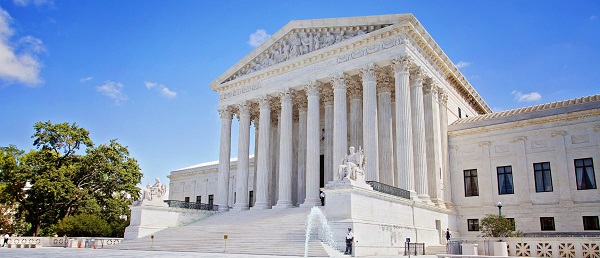

From the Daily Caller News Foundation
“The Supreme Court put to rest any question about whether fuel manufacturers have a right to challenge unlawful electric vehicle mandates”
The Supreme Court sided Friday with oil companies seeking to challenge California’s electric vehicle regulations.
In a 7-2 ruling, the court allowed energy producers to continue their lawsuit challenging the Environmental Protection Agency’s decision to approve California regulations that require manufacturing more electric vehicles.
“The government generally may not target a business or industry through stringent and allegedly unlawful regulation, and then evade the resulting lawsuits by claiming that the targets of its regulation should be locked out of court as unaffected bystanders,” Justice Brett Kavanaugh wrote in the majority opinion. “In light of this Court’s precedents and the evidence before the Court of Appeals, the fuel producers established Article III standing to challenge EPA’s approval of the California regulations.”
Kavanaugh noted that “EPA has repeatedly altered its legal position on whether the Clean Air Act authorizes California regulations targeting greenhouse-gas emissions from new motor vehicles” between Presidential administrations.
“This case involves California’s 2012 request for EPA approval of new California regulations,” he wrote. “As relevant here, those regulations generally require automakers (i) to limit average greenhouse-gas emissions across their fleets of new motor vehicles sold in the State and (ii) to manufacture a certain percentage of electric vehicles as part of their vehicle fleets.”
The D.C. Circuit Court of Appeals previously rejected the challenge, finding the producers lacked standing to sue.
“The Supreme Court put to rest any question about whether fuel manufacturers have a right to challenge unlawful electric vehicle mandates,” American Fuel & Petrochemical Manufacturers (AFPM) President and CEO Chet Thompson said in a statement.
“California’s EV mandates are unlawful and bad for our country,” he said. “Congress did not give California special authority to regulate greenhouse gases, mandate electric vehicles or ban new gas car sales—all of which the state has attempted to do through its intentional misreading of statute.”
Business
Ottawa has spent nearly $18 billion settling Indigenous ‘specific claims’ since 2015
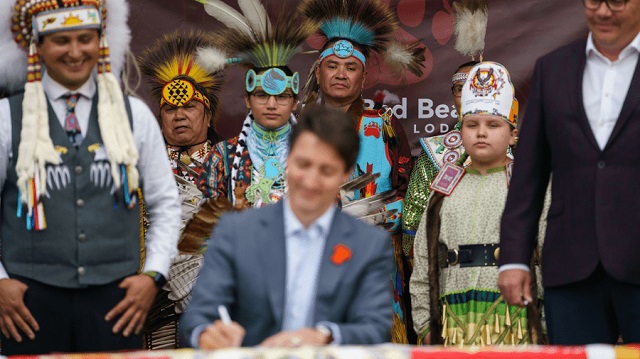
From the Fraser Institute
By Tom Flanagan
Since 2015, the federal government has paid nearly $18 billion settling an increasing number of ‘specific claims’ by First Nations, including more than $7 billion last year alone, finds a new study released today by the Fraser Institute, an independent, non-partisan Canadian public policy think tank.
“Specific claims are for past treaty breaches, and as such, their number should be finite. But instead of declining over time, the number of claims keeps growing as lucrative settlements are reached, which in turn prompts even more claims,” said Tom Flanagan, Fraser Institute senior fellow, professor emeritus of political science at the University of Calgary and author of Specific Claims—an Out-of-Control Program.
The study reveals details about “specific claims,” which began in 1974 and are filed by First Nations who claim that Canadian governments—past or present—violated the Indian Act or historic treaty agreements, such as when governments purchased reserve land for railway lines or hydro projects. Most “specific claims” date back 100 years or more. Specific claims are contrasted with comprehensive claims, which arise from the absence of a treaty.
Crucially, the number of specific claims and the value of the settlement paid out have increased dramatically since 2015.
In 2015/16, 11 ‘specific claims’ were filed with the federal government, and the total value of the settlements was $27 million (in 2024 dollars, to adjust for inflation). The number of claims increased virtually every year since so that by 2024/25, 69 ‘specific claims’ were filed, and the value of the settlements in 2024/25 was $7.061 billion. All told, from 2015/16 to 2024/25, the value of all ‘specific claims’ settlements was $17.9 billion (inflation adjusted).
“First Nations have had 50 years to study their history, looking for violations of treaty and legislation. That is more than enough time for the discovery of legitimate grievances,” Flanagan said.
“Ottawa should set a deadline for filing specific claims so that the government and First Nations leaders can focus instead on programs that would do more to improve the living standards and prosperity for both current and future Indigenous peoples.”

Specific Claims: An Out-of-Control Program
- Specific claims are based on the government’s alleged failure to abide by provisions of the Indian Act or a treaty.
- The federal government began to entertain such claims in 1974. The number and value of claims increased gradually until 2017, when both started to rise at an extraordinary rate.
- In fiscal year 2024/25, the government settled 69 claims for an astonishing total of $7.1 billion dollars.
- The evidence suggests at least two causes for this sudden acceleration. One was the new approach of Justin Trudeau’s Liberal government toward settling Indigenous claims, an approach adopted in 2015 and formalized by Minister of Justice Jodi Wilson-Raybould’s 2019 practice directive. Under the new policy, the Department of Justice was instructed to negotiate rather than litigate claims.
- Another factor was the recognition, beginning around 2017, of “cows and plows” claims based on the allegation that agricultural assistance promised in early treaties—seed grain, cattle, agricultural implements—never arrived or was of poor quality.
- The specific-claims process should be terminated. Fifty years is long enough to discover legitimate grievances.
- The government should announce a short but reasonable period, say three years, for new claims to be submitted. Claims that have already been submitted should be processed, but with more rigorous instructions to the Department of Justice for legal scrutiny.
- The government should also require more transparency about what happens to these settlements. At present, much of the revenue paid out disappears into First Nations’ “settlement trusts”, for which there is no public disclosure.
-
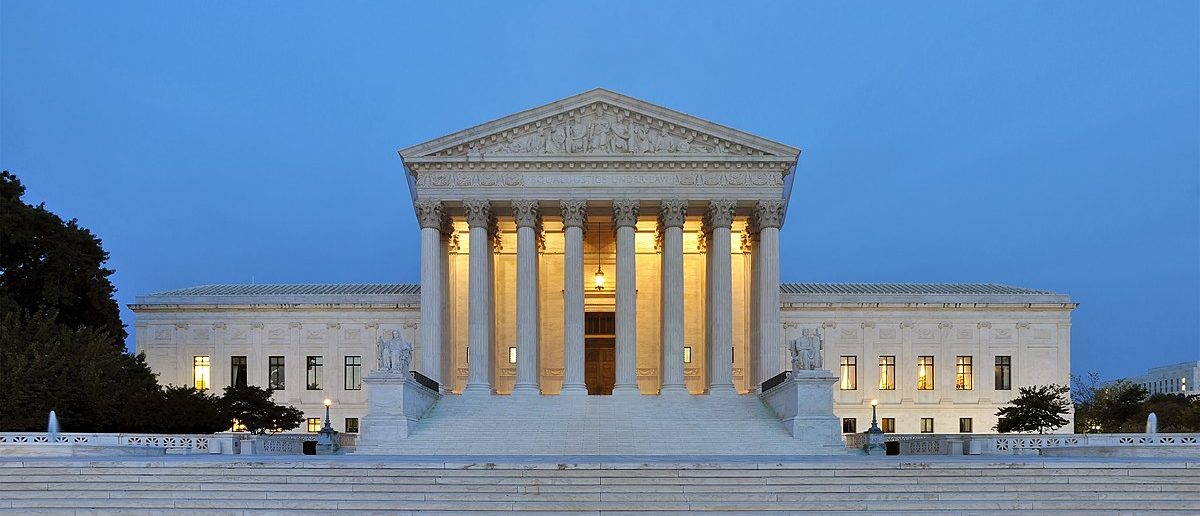
 Daily Caller1 day ago
Daily Caller1 day agoUnanimous Supreme Court Ruling Inspires Hope For Future Energy Project Permitting
-

 Alberta2 days ago
Alberta2 days agoUnified message for Ottawa: Premier Danielle Smith and Premier Scott Moe call for change to federal policies
-

 espionage1 day ago
espionage1 day agoFBI Buried ‘Warning’ Intel on CCP Plot to Elect Biden Using TikTok, Fake IDs, CCP Sympathizers and PRC Students—Grassley Probes Withdrawal
-

 Agriculture1 day ago
Agriculture1 day agoUnstung Heroes: Canada’s Honey Bees are not Disappearing – They’re Thriving
-

 espionage1 day ago
espionage1 day agoFrom Sidewinder to P.E.I.: Are Canada’s Political Elites Benefiting from Beijing’s Real Estate Reach?
-

 International2 days ago
International2 days agoJudiciary explores accountability options over Biden decline ‘coverup’
-

 Economy2 days ago
Economy2 days agoOttawa’s muddy energy policy leaves more questions than answers
-
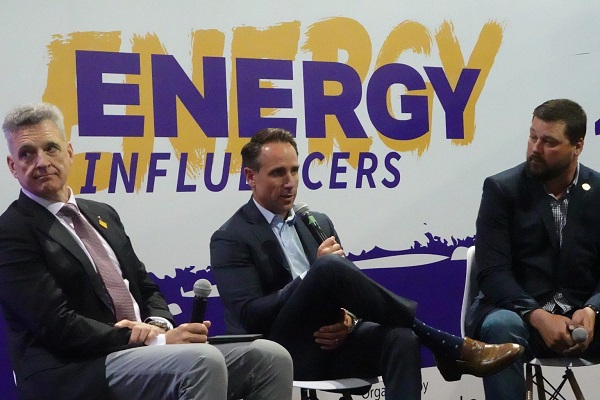
 Alberta1 day ago
Alberta1 day agoAlberta’s carbon diet – how to lose megatonnes in just three short decades



